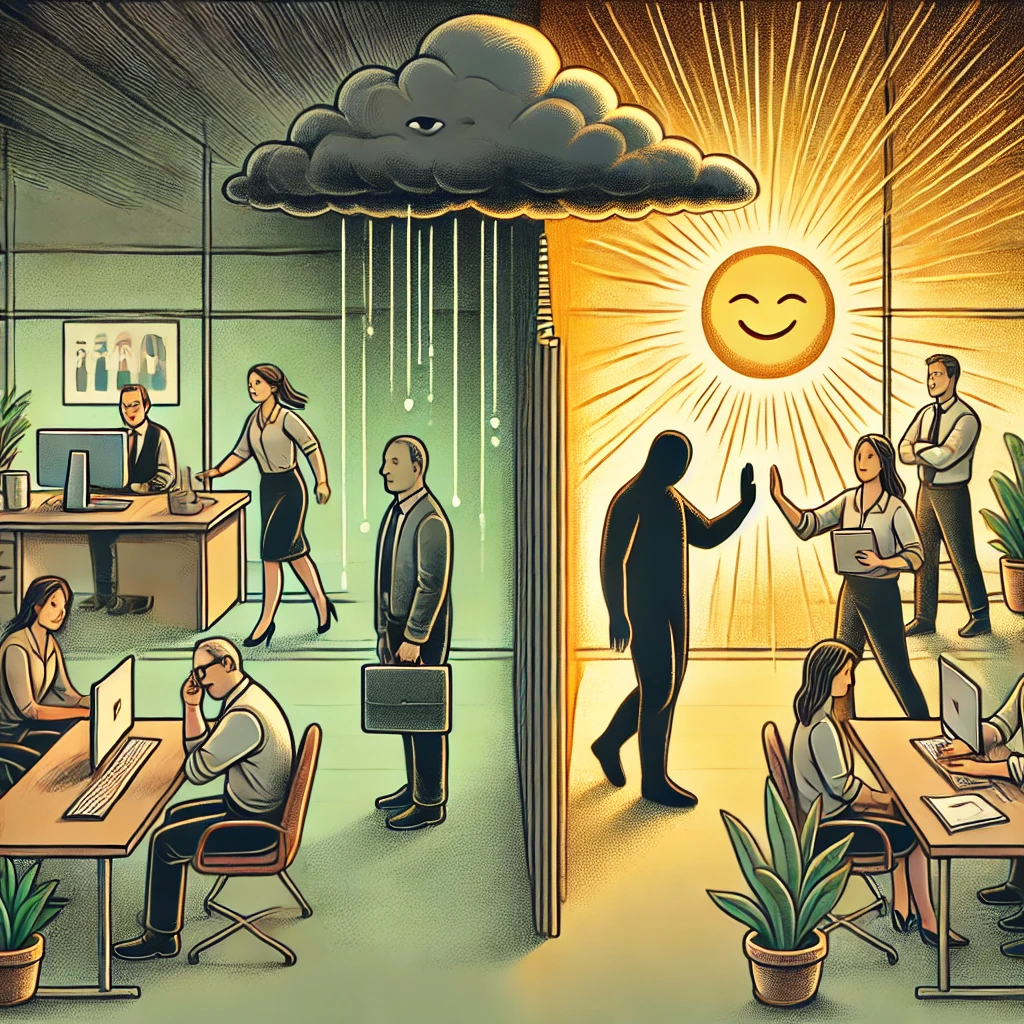Negativity in the Workplace
This will be a 3-part series on the topic of negativity in the workplace – seeing it for what it is; deciding what to do; and a case study.
Part I – Why it is Contagious
When I teach classes to management, often I hear about the negativity that exists in the workplace. This can be true no matter the company size or industry. Law firms, banks, grocery stores – all have the same complaint: too many complaints.
My first question is always why does it bother you? And the answers typically include the following:
* because it makes me feel bad too;
* a little bit of negativity brings everyone down;
* it spreads;
* it’s not fun to work here any more
From this we can see the two basic problems that arise from negativity in the workplace: (1) it saps your energy, brings you down, makes you not want to do your job; and (2) it is contagious.
Study after study has shown in recent years that employee engagement is pretty low. (One study states that only 30% of employees are truly engaged in their jobs.) Our employees don’t really want to be there and don’t often see the point in their jobs. I think a part of this is the negativity that pervades some workplaces. But it’s a vicious cycle, isn’t it? If I don’t like my job, I am going to come across as negative and the more negative I am the more I don’t like my job.
Why is negativity so contagious? I think it comes back to the concept of rapport. Rapport is something that comes naturally to human beings. When I use “rapport” in this context, I am talking about the human desire to be with others like ourselves. I am talking about the fact that you often are far more comfortable around people with whom you have something in common – gender, beliefs, hobbies, history. For more in-depth treatment of the concept of rapport – specifically, consciously gaining rapport in order to win people over to your way of thinking and behaving – see other blog posts under “enrollment.” [http://www.mclarencoaching.com/sell-without-selling-part-ii/]
Why is this rapport concept important in talking about negativity in the workplace? People like to be in rapport. This means that we naturally seek out others like us. Look at your friends and notice what you have in common with them. But it also means we become like the people we are around. Look at your immediate family, especially your spouse, especially if you have been married for a significant amount of time. What attitudes do you share, particularly attitudes you hold now that you may not have come into your marriage with? Do you use similar language? Do you have similar behaviors? Do you (gulp) dress alike?
We become like that which we associate with. This is the bad news and the good news. Actually, it’s only bad news for you up to the point that you read this. Because up until this point, you were likely unconscious of the fact that you were becoming like the people around you or maybe, that you had a choice in the matter. The good news is now you know. And now that you know, you can do something about it. Not only can you choose not to get sucked in to the negativity around you, but you can also start to change things. More on this in next week’s blog.







